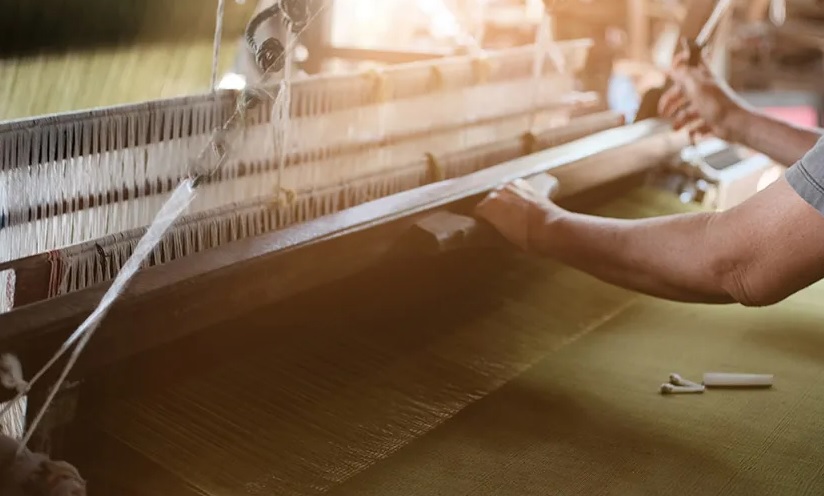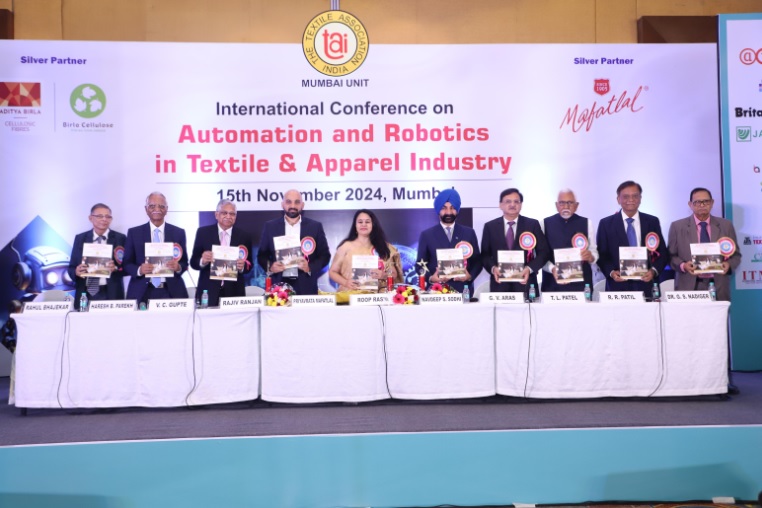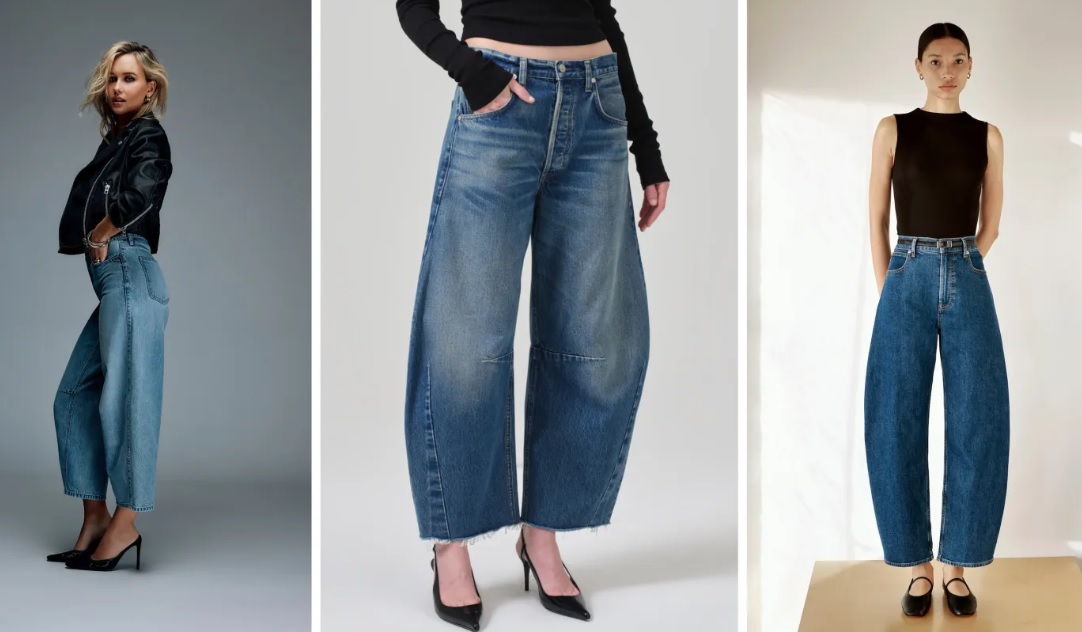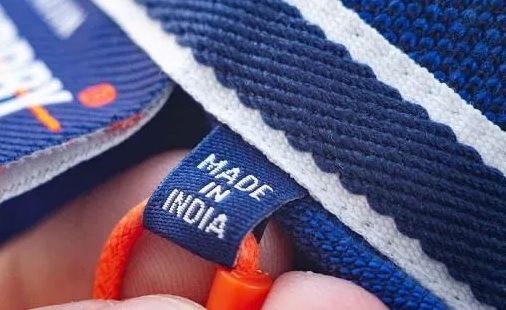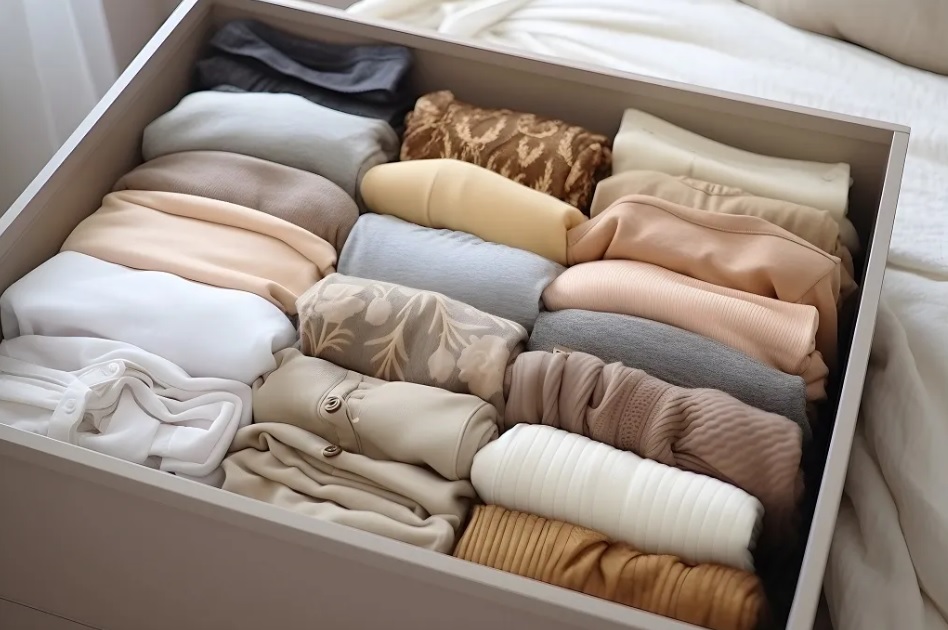FW
Billy R Gardner has been honored with the prestigious Harold C Chapin Award by the American Association of Textile Chemists and Colorists (AATCC) for his exceptional contributions to the Piedmont Section and the AATCC Foundation. Gardner, a member since 1973, has held key positions, including Chair and Treasurer of the Piedmont Section. He also played a pivotal role in moderating and organizing several Yarn Dyeing symposia. Currently, he serves as Chair of the Charles H Stone and Piedmont Section Scholarship Committee.
Gardner’s dedication to the textile industry is evident through his longstanding advocacy for student education. As Chair of the scholarship committees, he has been instrumental in conducting scholarship interviews, both in-person and online. He strives to make textile education accessible, ensuring that financial barriers do not prevent passionate students from pursuing careers in the industry.
Gardner’s professional journey includes earning a BS in Chemistry and Textile Chemistry from North Carolina State University in 1973. He worked in various roles, including as a lab manager and in sales, before founding BRGardner Enterprise Inc. in 2021.
Gardner received the Chapin Scroll during the AATCC Textile Discovery Summit Awards Luncheon on October 8, 2024, in Savannah, GA.
Kering has announced leadership changes effective January 2, 2025. Cedric Charbit will become CEO of Saint Laurent, while Gianfranco Gianangeli takes over as CEO of Balenciaga. Both will report to Francesca Bellettini, Kering’s Deputy CEO in charge of Brand Development.
Charbit, who joined Kering in 2012 as Saint Laurent’s Product Strategy Director, has led Balenciaga as CEO since 2016. He will now succeed Bellettini at Saint Laurent, focusing on driving growth by leveraging the brand's heritage and unique identity.
Gianangeli, currently Chief Commercial Officer of Saint Laurent, brings extensive luxury industry experience, including roles at MaisonMargiela and other renowned fashion houses. As Balenciaga’s new CEO, he aims to expand the brand’s global presence and strengthen its position.
Francesca Bellettini expressed confidence in the appointments, praising Charbit’s understanding of Saint Laurent and Gianangeli’s expertise in luxury leadership. She emphasized their ability to guide the iconic brands toward future success.
François-Henri Pinault, Kering Chairman and CEO, highlighted the organization’s strengthened leadership. Bellettini will focus on developing all Kering’s Fashion, Leather Goods, and Jewelry Houses, while Jean-Marc Duplaix will ensure operational alignment across the group as Deputy CEO and COO.
These appointments are part of Kering’s strategy to address industry challenges and drive long-term growth.
As highlighted during the opening of the Destination Africa 2024 exhibition, the Apparel Export Council of Egypt (AECE) aims to boost the country’s textile and apparl (T&A) 0exports by 10 per cent to $1.23 billion by 2024-end and further to $1.4 billion by 2025-end. In 2023, the country’s T&A exports grew by 5 per cent to $1.2 billion, affirms Hani Salam, Chairperson.
The 8th edition of Destination Africa exhibition, held in Cairo from Nov 16-17, 2024 featured 100 exhibitors, including 30 Egyptian textile companies—a significant increase from 20 participants last year. This uptick demonstrates the exhibition's effectiveness in attracting more businesses eager to capitalise on the opportunities it provides.
The exhibition attracted high-level attendees including Hassan El-Khatib, Minister of Investment; Hossam Heiba, Chairperson, Investment and Free Zones Authority; Mohamed Qasai, President, Egyptian Exporters Association (ExpoLink); and Fadil Marzouk, Chairperson, Ready-made Garments Export Council. The event hosted 100 exhibitors and over 250 international buyers from key global markets, reinforcing Egypt’s reputation as a premier hub for international trade exhibitions.
According to Salam, the council attracted 75 international buyers specifically from the textile sector, with participants hailing from Europe, the United States, Arab countries, and African nations like Ghana, Kenya, Algeria, and Morocco. The total number of international buyers, spanning both ready-made garments and textiles, surpassed 250. This strong turnout underscores the exhibition's role in fostering regional and global partnerships within the industry.
Emphasising on the council's efforts to integrate Egyptian textile products into international supply chains, Salem also highlighted the council’s focus on strengthening ties with European and African markets, with promotional campaigns playing a key role in achieving these objectives.

Drop in H&M's US sales that has almost 500 stores across the country, is not an isolated incident. The retail giant's struggles are a symptom of a larger trend sweeping across the US a significant shift in consumer behavior driven by economic anxieties and a growing interest in sustainability. As inflation continues to squeeze wallets and concerns about environmental impact rise, Americans are re-evaluating their spending habits, particularly when it comes to apparel.
Thrifting takes center stage
Once considered a niche market, secondhand shopping is experiencing explosive growth. A recent report by online thrift store ThredUp paints reveals the US secondhand apparel market is projected to reach $150 billion by 2028, a 50 per cent increase from its current $100 billion valuation. What’s more consumers plan to purchase 7 per cent less new apparel in 2024 compared to 2023. And 55 per cent consumers surveyed said they would allocate a larger portion of their apparel budget to secondhand clothing if the economy doesn't improve.
No wonder, H&M's third-quarter earnings for 2024 saw a 3 per cent drop in net sales across all regions and a 2 per cent decline in North and South America, compared to the same period in 2023. The company's operating profit also decreased 26 per cent. H&M CEO Daniel Ervér attributed this downturn to high living costs and global economic downturn impacting consumer spending. H&M is now looking to close 200 stores globally in 2024, primarily in established markets.
H&M is not alone in facing these challenges. Other major retailers, including Macy's and Gap, have also reported declining sales and announced store closures in recent months. Macy’s the department store chain recently announced plans to close 125 stores over the next three years and cut 2,000 corporate jobs. And clothing retailer Gap reported 8 per cent drop in net sales in the second quarter of 2024 and announced plans to close approximately 350 stores by the end of 2023.
While economic concerns are a significant driver why secondhand clothing is catching up, other factors are also at play. Consumers, particularly younger generations, are increasingly conscious of the environmental impact of fast fashion. Secondhand shopping aligns with their values of sustainability and reducing waste. Shoppers are actively seeking value and deals, making them more price-sensitive and less brand-loyal.
The future of retail
This evolving consumer landscape presents both challenges and opportunities for retailers. To remain competitive, businesses must adapt to these changing preferences by first embracing circularity. They need to explore resale programs and initiatives that promote the longevity of their clothing. Prioritize value and sustainability by offering high-quality, durable products that appeal to conscious consumers. And enhance customer experience by creating engaging and personalized shopping experiences that foster loyalty.
To boost India's apparel exports from the current $15 billion to $30 billion, Praveen Chakravarty, Chairman, Professional Congress, has urged Finance Minister Nirmala Sitharaman to reduce import tariffs on synthetic fabrics.
In a letter titled ‘Proposals to Boost Garment Exports and Create One Crore New Jobs,’ Chakravarty emphasises, the existing 20 per cent tariff on synthetic fabrics significantly hinders India's ability to compete in global markets
The top five importing countries — America, Germany, Japan, France, and Britain — predominantly purchase synthetic garments, with 70 per cent of imports being synthetic and only 30 per cent made from natural fabrics, Chakravarty highlights in his letter. However, India's exports are currently more focused on natural fabrics, limiting its reach in these markets. To meet international demand, India needs to shift its focus toward synthetic garments, he opines.
To accelerate growth in the sector, Chakravarty advocates for the creation of a special collateral-free credit scheme, directly tied to export performance for textile and apparel manufacturers. Such a program would have a more immediate and substantial impact than the existing Production-Linked Incentive (PLI) scheme, he points out.
In his letter, Chakravarty also emphasises on the importance of free trade agreements (FTAs) with key regions, such as the European Union, United Kingdom, and America. Citing data from NITI Aayog, the letter estimates, every $1 billion in garment exports could generate 1.25 lakh direct jobs and five lakh indirect jobs, with 70 per cent of these roles benefiting women.
British Wool celebrated record-breaking shearers at its AGM and annual conference, spotlighting exceptional achievements in the field. Nick Greaves, from Staffordshire, set a world lamb shearing record by shearing 764 lambs in eight hours, breaking New Zealand's 50-year hold on the title.
Scottish shearer Una Cameron surpassed the women’s solo strong wool ewe record by 59 sheep, while Welsh shearer Meirion Evans broke a British record by shearing 791 sheep in nine hours.
The trio received Harris Tweed Hebrides caps made from 100 per cent British wool and vouchers for the British Wool Shop.
British Wool CEO Andrew Hogley praised the shearers and highlighted the recent 25 per cent rise in wool prices, achieving their highest levels in over five years. He emphasized continued efforts to further improve farmer returns.
Hogley also showcased marketing efforts, including a Shaun the Sheep campaign promoting wool carpets through over 1,000 UK retailers. Collaborations with figures like Patrick Grant and Joe Lycett have bolstered consumer awareness of British wool products.
Speakers Gary Hurlstone from NextGen Tree Shelters and Mark Hogarth from Harris Tweed Hebrides stressed British wool's importance to their businesses. Delegates also toured the Harrison Spinks factory, a major user of traceable British wool, recently honored with the King’s Award for Sustainable Development.
India’s textile exporters hope, Donald Trump’s return to the White House as the new President-elect will significantly boost to their market share in the United States. Trump’s emphasis on reducing dependency on China is expected to open up new opportunities for Indian suppliers in the American textile and apparel (T&A) market, says Rakesh Mehtra, Chairman, Confederation of Indian Textile Industry (CITI).
Representing 27 per cent of the sector’s exports in 2023, the United States continues to be a critical market for Indian textiles As per recent data, in Oct’24, India’s textile exports to the US increased by 11.56 per cent Y-o-Y while apparel exports expanded by 35.06 per cent. From Apr- Oct’24, India’s total T&A exports to the US grew by 7.08 per cent compared to the same period in 2023.
This performance outpaces key competitors, notes Mehra, highlighting India's stronger gains compared to other nations. For example, China’s exports grew at a modest rate of only 2 per cent, while Vietnam’s exports rose by a mere 0.4 per cent and Bangladesh experienced a 2.2 per cent decline. India’s enhanced performance reflects its growing preference among US buyers, he adds.
However, despite these positive trends, high US tariffs remain a significant challenge for Indian exporters. Tariffs as high as 32 per cent on some Indian textiles and apparels continue to impact their price competitiveness. The new Trump administration is expected to engage in negotiations to reduce these tariffs, allowing India to strengthen its position as a leading supplier of high-quality textiles to the US market, hopes Mehra.
Emphasising on India’s expanding influence in countries with free trade agreements (FTAs), such as South Korea, Japan, and Australia, Sudhir Sekhri, Chairman, AEPC notes, international buyers view India as a stable and reliable alternative to traditional sourcing countries like Bangladesh and China.
Mithileshwar Thakur, Secretary-General, AEPC, emphasises, India needs ongoing investment, funding, and training to maintain a competitive edge amidst global trade disruptions and rising costs.
The MSME Pavilion at this year’s 43rd India International Trade Fair (IITF), being held in New Delhi, focuses on the Ministry’s commitment to adopt clean and sustainable technologies.
Featuring the PM Vishwakarma Scheme, the pavilion adopts the theme of ‘Green MSMEs. It has so far attracted 200 exhibitors from 29 states and Union Territories.
The pavilion features a s wide range of products from textiles, handooms, handicrafts to leather footwear, bamboo and cane crafts along with pottery, jewelry and mechanical items, etc. The fair provides a valuable platform to Micro and Small Enterprises (MSMEs), particularly those owned by women and SC/ST entrepreneurs, to showcase their products to a large and diverse audience.
Aligned with the Ministry’s focus on inclusive growth, 71 per cent of the Pavilion’s stalls have been allocated to women entrepreneurs, and 45 per cent to SC/ST entrepreneurs. Additionally, 35 per cent of the stalls are designated for entrepreneurs from aspirational districts, with over 85 per cent of the participants exhibiting for the first time.
During the inauguration, Manjhi engaged with several exhibitors, offering encouragement and support for their contributions to the fair. To raise awareness about the PM Vishwakarma Scheme, a ‘Nukkad Natak’ (street play) was performed, attracting attention and highlighting the scheme’s benefits for traditional artisans.
The MSME Pavilion showcases the Ministry's dedication to sustainability, inclusivity, and supporting small businesses, providing a significant opportunity for entrepreneurs to reach new markets and potential customers.
A coalition of 78 business associations from the EU and Mercosur has urged governments to finalize the EU-Mercosur Free Trade Agreement (FTA) negotiations. The joint statement, addressed to European and Mercosur leadership, highlights the agreement’s potential to enhance trade ties, bolster investment, and promote sustainable development.
In 2022, EU-Mercosur trade in goods and services exceeded €159 billion, with mutual investments nearing €380 billion, underpinning millions of jobs across both regions. The coalition emphasized that the FTA would address challenges such as geopolitical instability and supply chain disruptions while fostering economic recovery and growth.
The key benefits of the EU-Mercosur FTA include eliminating trade barriers to facilitate smoother exchanges of goods and services, thereby enhancing market access. It also aims to strengthen trade relationships, ensuring reliable access to critical resources and bolstering supply chain resilience.
Additionally, the agreement seeks to promote sustainability by advancing labor rights, improving environmental standards, and fostering sustainable development through deeper cooperation between the regions.
The associations view the FTA as a strategic opportunity to deepen ties and position both regions for competitiveness in the evolving global landscape. The statement calls for urgent action from policymakers to ratify the agreement, paving the way for a stronger economic partnership.
Signatories include prominent organizations like BusinessEurope, EURATEX, spiritsEurope, and Brazil’s CNI, among others. These groups collectively represent a diverse range of industries, including textiles, chemicals, automotive, and agriculture.
The coalition stressed that the agreement is essential for shared prosperity, urging swift political resolve to finalize and implement the deal.
A US-based fabric brand, Pallas Textiles has launched a new fabric collection made from recycled plastics collected from oceans and landfills. Titled, ‘In Good Company,’ the collection has been launched in collaboration with American design studio Limn & Loom and US-based textile manufacturer Valdese Weavers. Utilising Seaqual Yarn, this partnership aims to blend sustainability with innovative design.
A fabric known for its durability and eco-friendly composition, Seaqual Yarn is the major component of the ‘In Good Company’ collection made from recycled materials sourced from land and sea. Around 10 per cent of fabrics in this collection have been made from upcyled plastics sourced from European waterways including oceans and lakes, while the rest has been derived form post-consumer waste retrieved from landfills.
Launched by the organisation Seaqual, the collection is created by cleaning and transforming the discarded plastics into high-quality fibers to be further woven into textiles used by brands like Pallas Textiles.
The collection offers six distinct fabric ranges including Kai, a structured fabric with a heathered texture, featuring warp and weft yarns that create a sophisticated design; Hali, a plush, chunky textile made with bouclé yarn, perfect for furniture upholstery; Maren, a luxurious fabric that uses chenille and slub yarns to produce an elegant interplay of shades, creating a sense of movement; Isla, a serene fabric that captures the effect of light across surfaces with a palette inspired by scenic landscapes; Ahti, a uniform design with velvety, fine-spun yarns available in jewel tones for a pop of color and Llyr, a subtly aged look with a nuanced weave, adding depth and texture to interior spaces.
The collection aims to promote sustainable production and support Seaqual's ongoing efforts to clean up waterways. A portion of the proceeds from sales will be donated back to Seaqual, contributing to its environmental initiatives.


